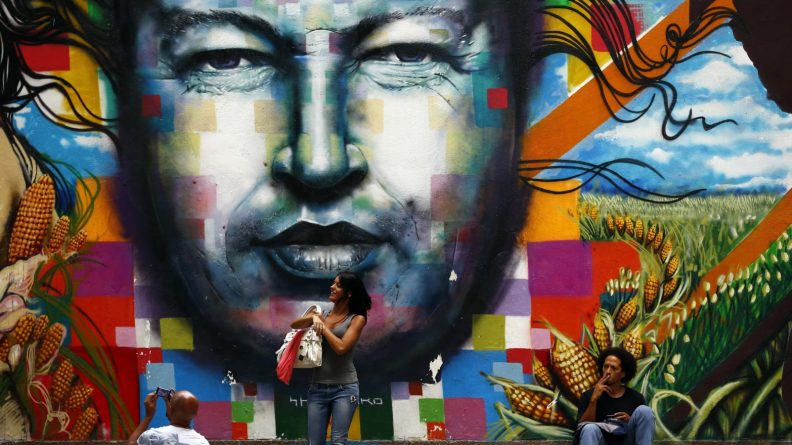
Suspicious as I am of the “instruments” to measure who is more revolutionary than who, and enemy of the contests of egos, I dare, however, to say that there are criteria to determine when governing is conducted in a revolutionary way.
I will do it in very general terms, resorting, once again, to the worn formula of the Decalogue. I do it because it seems necessary. Because it is no time to distribute blame, but much less to conclude that we are all guilty. Because the analysis must start from our practices, and in no case can they become a parade of generalities.
- An official who is limited to just managing a public institution, whatever it may be, is not a revolutionary official.
RELATED CONTENT: Junkies of Betrayal
- The presence of revolutionaries is not necessary for institutions to function. In fact, these institutions (ministries, public agencies, utilities, etc.) can work perfectly well without those. The issue is: to work for what, for whom? In the case of revolutionaries, what corresponds, following Alfredo Maneiro, is to act with “revolutionary quality”, that is, to make use of our capacity “to participate in an effort directed to the transformation of society, to the creation of a new system of human relations “.
If, in addition, the official limits himself to administering the “benefits” of the Bolivarian government, we are facing a doubly regressive practice.
Chavistas can not be asked to be silent and complicit in the face of these practices. The discomfort that they produce must be converted into a force for the organization, mobilization and popular control of management. If this does not happen, the malaise can degenerate into resignation, forcing a part of the people to join the clientelist networks in order to access “benefits”. Where there is a clientele there are no citizens. Wherever Chavismo once produced politicization, depoliticization begins to flourish. In other cases there is not even resignation: there is just an abandonment of the public sphere.
RELATED CONTENT: Maduro On a Cabinet Shake Up
- Repolitization means transformative management, moved by the universal principle of justice. It supposes an ethic: it corresponds to revolutionaries to situate themselves “from the perspective of those who suffer”, to say it with Dussel .
Commander Chavez guided us on the need to re-politicize management at a time when the phenomenon of the managerial secularization of revolutionary politics was imposed. This occurs when, faced with the critique of institutionality, revolutionaries choose to ignore popular criticism and take refuge in the defense of institutionality. Common to all revolutionary processes, this phenomenon began to take shape in Venezuela, for various reasons, after the victory in the presidential elections of 2006.
The managerial secularization of revolutionary politics is not a fatality. There is no such thing as the irreversibility of the process of bureaucratization of the Bolivarian revolution. The timely action of the revolutionary forces can reverse this process. We must beware of anyone who “decrees” the end of revolutionary processes.
An official who is allied with the “powers that be” for personal or group gain, in contradiction with popular (people’s) interests, is not revolutionary. An official who limits himself to favoring groups, even if they call themselves “revolutionaries”, is not revolutionary.
If you evaluate a management performance according to the degree of benefit obtained personally, deliberately ignoring the general picture, you are not acting as a citizen, but as a client (and much less as a revolutionary).
There is no repolitization without protagonist (empowered) people . But there is guardianship disguised as repolitization. Guardianship is deeply conservative, anti-popular. Whoever practices it, thinks he is the only one who knows how to make a revolution. For those who claim the right to “guard”, the burden of proof always falls on the people, who are obliged to prove, to infinity, their status as political subjects, as citizens. If the foundations of Chavismo resent the performance of the civil servant or a corrupt, clientelistic politician, the one who “guards” them demands discipline, “conscience”. If the foundations of Chavismo get demoralized or stop voting, they do not do so as of right, but because they lack “conscience”. Who will provide awareness so that it does not happen again? The one who “guards”. What will happen to the causes of the discomfort? They will probably remain intact, sharpening the popular discontent. At least until the alliance between the revolutionary civil service and the popular bases is produced or strengthened.
These simple criteria should serve to identify the officials, almost all anonymous, who struggle to transform the institutional framework to put it at the service of popular interests. They almost always do it in silence, working tirelessly, without expecting anything in return. They are clearly distinguished from negative leaderships: those who, in the name of “popular power” and criticism of “bureaucracy” and, sometimes, simply in the name of “criticism”, try to impose personal or group interests. May the scandal they are capable of not distract us.
Source URL: El Otro Saber y Poder
Translated by JRE/EF
| Website




